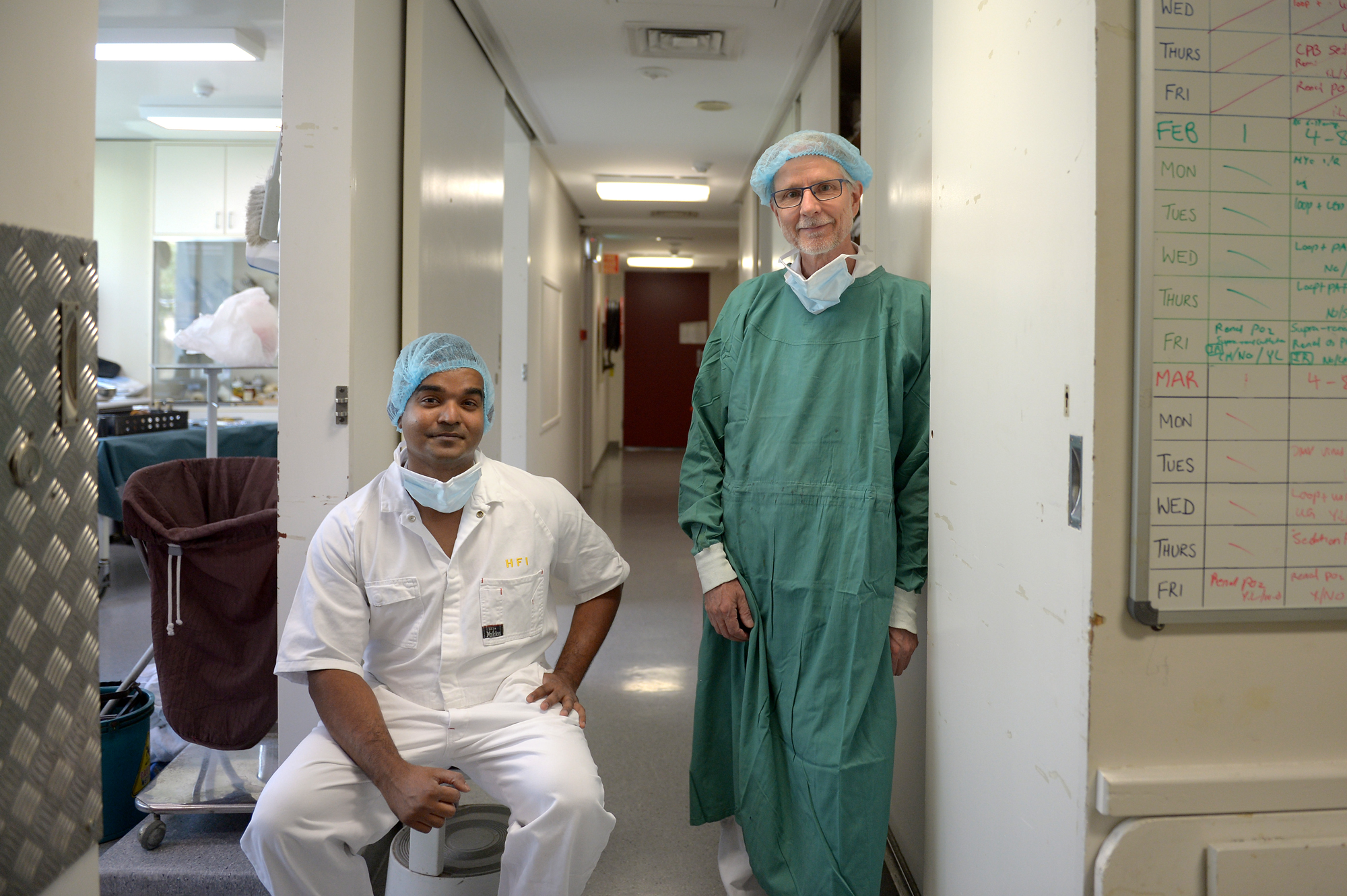
Left to right: Dr Yugeesh Lankadeva and Professor Clive May
Approximately 300 million major surgical procedures happen worldwide every year.
Few people realise that acute kidney injury is a common complication in up to one-third of people undergoing major surgery. When this happens, patients face poor short- and long-term outcomes.
What actually causes the kidney injury is unknown but recent findings from Florey researchers suggest it is almost certainly due to a disruption in the kidney’s blood supply and oxygen levels.
Dr Yugeesh Lankadeva and Professor Clive May, in collaboration with Japanese clinical anaesthesiologists from Osaka and Okayama Universities, have now published their findings on anaesthesia and kidney health, and they have important implications for patients undergoing major surgical procedures.
Every anaesthesiologist has a personal favourite anaesthetic technique and recipe – gas mask or IV infusion – for putting people to sleep before surgery. These decisions are guided by institutional protocols and the anaesthesiologist’s preferences based on their previous experience.
But the consequences for patients of using a particular anaesthetic regime can have severe outcomes such as acute kidney injury, which can lead to chronic kidney disease.
Using a large animal model that closely replicates common human surgical procedures, the researchers set out to answer the seemingly simple question of what happens to the kidney in response to different anaesthetics.
The answers surprised even them.
Using advanced probes, they developed in conjunction with a medical device company, they observed a 50 per cent reduction in kidney blood flow when an injected anaesthetic was used and 80 per cent when a gas anaesthetic was delivered.
This reduction in kidney blood flow – to dangerously low levels under anaesthetic – can increase the risk of damage to the kidney when a large increase in blood flow returns after anaesthesia is withdrawn, a so-called reperfusion injury.
The researchers also measured the amount of nerve activity from the brain to the kidney. They found that the activity was increased substantially with gas delivered anaesthesia, but not with injected anaesthesia. The increased nerve activity constricts blood vessels in the kidney and reduces blood flow, thereby damaging the kidney.
These results show a clear risk of damaging the kidney with all anaesthetics, especially with inhaled ones. Of course, very sick patients absolutely need surgery, so the team’s next steps are to begin human trials comparing different types of anaesthetics to track their effects on kidney function.
It’s possible that the nerve activation associated with anaesthesia, especially the inhaled gas form, is also impairing the immune system, according to Clive, head of the preclinical critical care unit.
“There is a well-known link between the nervous system and the immune system, and activation of the nervous system can inhibit the immune system”
– Prof Clive May
For older people, the news is perhaps even more concerning. Dr Liz Evered from St Vincent’s Hospital showed that two markers of brain cell injury increase in the first 48 hours after surgery in people aged 60 and over.
The research was funded by the National Health and Medical Research Council and the National Heart Foundation of Australia.